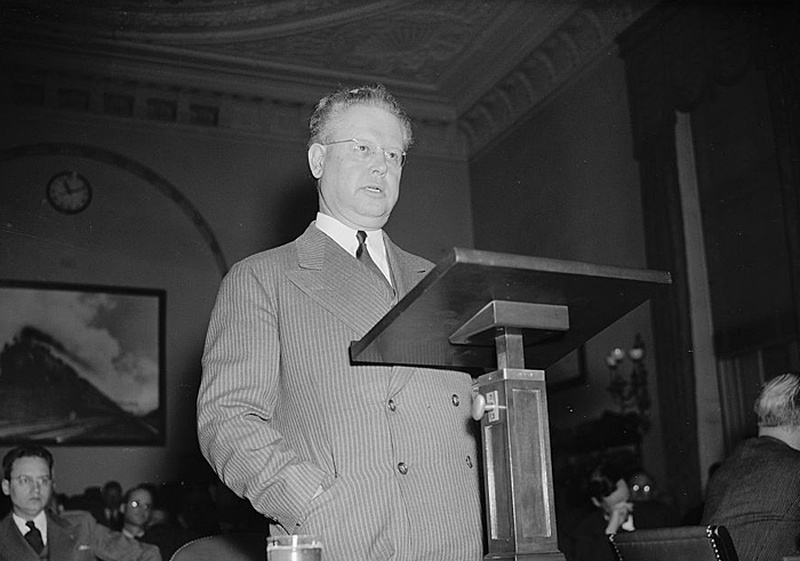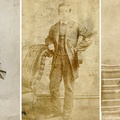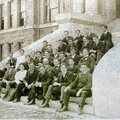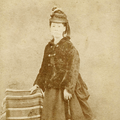A courageous act of justice
"If you're going to attack them, attack me first."
After the attack on Pearl Harbor in December 1941, Japanese residents of Japanese descent were considered enemy foreigners and suffered discrimination and prejudice. While many people were hostile towards them, there were those who stood up to defend the Japanese residents who were enduring persecution, even at the risk of their own lives.
Amidst the frenzy on the streets, then-Colorado Governor Ralph Lawrence Carr delivered these opening words in a speech to the state's citizens, calling for an immediate end to discrimination against Japanese residents.
Meanwhile, in California, non-Japanese Americans continued to protect the homes and plantations of Japanese residents who had been sent to internment camps until the end of the war. Despite being criticized and slandered, and even at times having guns pointed at them, they continued to defend their homes and land until the Japanese residents returned from the internment camps.
With the presidential election approaching in 2020, this year also marks the 70th anniversary of Carr's death. As hardline immigration policies are being pushed forward, we would like to highlight the contributions of courageous people who fought for justice, along with the testimony of Carr's grandson, who was by his side as he stuck to his beliefs despite racial prejudice, and the voices of historical witnesses who experienced internment.
In order to keep them in our memories and ensure that they are never forgotten, we would like to introduce people who offered "justice" and "friendship" instead of discrimination.
* * * * *
The man who extended the "hand of friendship": Ralph Lawrence Carr
On February 19, 1942, after the outbreak of war between Japan and the United States, then-President Franklin Roosevelt signed Executive Order 9066, ordering the forced evacuation of approximately 120,000 Japanese residents living on the West Coast of the United States and in parts of Hawaii.
Considered a threat to national security, Japanese residents were deemed enemy aliens and forced to leave the areas they lived in. Even second- and third-generation Japanese born in the United States and with citizenship were subject to discrimination because of their Japanese ancestry.
Of the Japanese residents, approximately 45,000 were first-generation Japanese born in Japan (at the time, first-generation Japanese were not eligible to obtain citizenship), while the remaining nearly 75,000 were born in the United States and held U.S. citizenship.
The Japanese residents who left the West Coast after receiving the deportation order had nowhere to go. The then Governor of Wyoming, Nels Smith, openly referred to them as "Japs," and the Attorney General of Idaho also issued a statement opposing the influx of Japanese residents into their state.
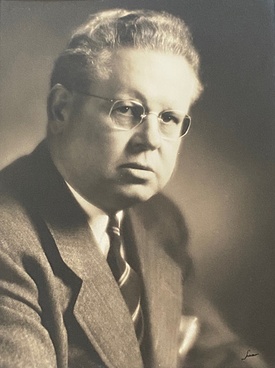
However, Carr, who was the governor of Colorado at the time, was an exception. He believed that discriminating against American citizens was a violation of the U.S. Constitution, and so he announced that Colorado would accept and welcome Japanese residents, extending a helping hand to Japanese residents who were suffering from persecution.
He was firmly opposed to internment, which he considered to be inhumane and a violation of the U.S. Constitution.
The January 1942 issue of the Japanese American Citizens League (JACL) newspaper, Pacific Citizen, contained a statement sent by Carr himself to the JACL. In an article entitled "A Time that Tests the Soul of a Man," Carr stated:
"America is made up of people of different races and nationalities from four continents. It is truly a melting pot of races. When we arrived in America, we left everything but our memories and relatives back home and were reborn as Americans with new loyalties. We expect American citizens born in America to Japanese parents to be role models for us. But we have no doubt that those who were not fortunate enough to be born in this country will become true Americans just like us, and we extend the hand of friendship to them as well."
While every state refused to accept Japanese residents, Colorado's Carr was the only one to declare his intention to accept them.
Even if it means sacrificing his own political career
However, Carr's decision caused a strong backlash from the state's residents. State residents opposed to the acceptance of Japanese residents turned into mobs and gathered. However, Carr gave the following speech to the angry state residents:
"Japanese Americans are protected by the same Constitution that protects us, and have the same rights as other citizens," he said, before continuing with some of the most courageous words in Japanese American history.
"If you're going to attack them, attack me first. I was born and raised in a small town where I learned to despise racial hatred because it is a shame and a disgrace, because it threatens your, your, your happiness," he said, pointing at each of them.
Carr was born in the small gold mining town of Rosita, Colorado in 1887. He graduated from the University of Colorado School of Law and worked as a lawyer while also managing a newspaper and working as an editor.
He became the US Attorney for the District of Colorado in 1929. In 1939, he became Governor of Colorado (Republican), serving two terms of four years until 1943. He was also once considered a leading candidate for vice president.
However, in the November 1942 U.S. Senate election, he lost to former Governor Edwin Johnson (Democrat) by a narrow margin of just 4,000 votes. It was said that his pro-Japanese stance led to the end of his political career.
*This article is reprinted from the Rafu Shimpo (January 3, 2020).
© 2020 Junko Yoshida / Rafu Shimpo


